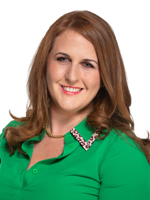How To Find Your Safe-Harbor Consultant

By Louis Garguilo, Chief Editor, Outsourced Pharma

Evelyn Kelly is buoyant proof a modern-day career tossed on the waves of biopharma-industry mergers and acquisitions can still land one securely on the shores of the perfect job.
And a perfect place to help biopharma organizations navigate outsourcing strategies and logistics.
That job for her is the Dublin-based consulting organization she established, Orphan Drug Consulting Ltd., in her native Ireland.
Later we’ll pursue her thoughts specifically on biopharma companies with orphan drug programs, but all readers will first want to hear the advice she extolls on these questions:
- How Do You Find The Consultants Right For You?
- Do Your CDMO And Consultants Get Along? (They Better)
- What Are The Best Outsourcing Strategies For Virtual Biopharma?
Let’s start here with that first one.
Coordinates To A Consultant
Kelly started out as a pharmacist, then moved up and down the biopharma supply chain, with roles at such organizations as Shire (now Takeda), NPS Pharma (acquired by Shire), and most recently in PTC Therapeutics, where she was Executive Director of Rest of World Supply Chain, before founding her growing, 15-plus person consulting company.
Her clients include biopharma companies seeking comprehensive product-launch management to global markets.
“I would definitely recommend to your readership that consultant reputation is key,” she says regarding your search for the best consultants. “Find someone who has been recommended.”
“Initially, that's how it starts out, by word of mouth. Places like Boston, or the biotech industry in North Carolina – they're small towns where word gets around.”
In fact, approximately 70% of business Orphan Drug Consulting receives is from U.S biotechs needing assistance in Europe.
“If a consultant ensures every job they take on is done right,” she says, “the feedback will always be positive.”
And Kelly has advice for working your professional network to get those recommendations.

One of those calls should be to your CDMO, which can serve as “a rich source.”
A rich source, with an important proviso guiding the CDMO-consultant relationship.
“I do not have contracts with CDMOs. I feel strongly on that,” she says. Consultants should “generate their revenue through supporting our clients.”
“We have excellent relationships with CDMOs. We support each other. But it's not a financial relationship,” Kelly explains.
“As a result, when a CDMO recommends me, the prospective client knows it’s for the right reasons.” (more on CDMOs specifically in part two)
Free Of Charge
Kelly points out when it comes to finding consultants, there are numerous free resources, like webinars, online discussions and other content – she also mentions LinkedIn – that can be important initial points of contact.
“Listen to what people have to say,” she advises. “I speak at a lot of webinars, and that's when many people first want to work with me.”
And any consultant that is interested in working with you, she says, should be able to provide an initial meeting and also useful information – free of charge.
“We actually do quite a lot free of charge,” says Kelly, “because I am confident it will lead to business.”
“Even if it doesn't result in direct business, it leads to somebody saying, ‘Well, this person from Orphan Drug Consulting was helpful and gave us good information. I think you should talk to them.’
“So for your readers, it's about building your network of the right contacts to help find the right consultants, and utilizing available information at webinars and the like.”
The Evaluation
Referrals will get you in the door, but how, I ask Kelly, does a biopharma know if the contract to get into that consultancy is fairly priced, and if a consultant is performing at a high level?
“If I were selecting a consultant today,” Kelly replies, “I’d first be gauging what they are in fact willing to do for me, what they will charge for that, and then their flexibility at the start when things are up in the air.”
“Ensure they are looking for a partnership. And what do partnerships do? They take care of each other.”
To facilitate that initial evaluation, Kelly says the consultants working for her are typically on a retainer basis for the first few months: “Quite flexible retainers, so everything can settle down, and everyone can get a clearer picture.”
“Look for transparency,” she advises. “Don't be afraid to ask, ‘Why this rate?’ if it seems high. We're happy to explain where our costs come in, and our rates.”
She continues:
“What level are their consultants? It's easy to benchmark salaries. If you were hiring someone that's clearly VP or SVP level, you know what salary they're due to be paid. Add a percentage on for that professional, and the consultancy’s percentage for their operational costs and profit.”
“The other piece I learned from when I was in supply chain and engaging consultancy companies myself, is be mindful of the consultants who continue on and on.
“Be wary of a consultant that doesn't get in, get the project done, and then get out. Keep to a clear scope of work. We're happy to continue our relationship with a client as long as they want, but only on different projects.
“Clearly define your budget, and how much time you're willing to spend. Then you can measure clearly if that consultant is doing what they said.”
Kelly sticks to this advice even for those projects that are in fact longer term and more involved.
For example, she’s currently preparing for a client with a major product launch in 2021. She currently has seven consultants on the project.
“It’s a big contract,” she says. “We're doing all their launch and preparation work in Europe.”
“I've already provided the client with the budget for 2021, and what to anticipate in 2022. We’ve informed them to anticipate the budget should be reduced dramatically in Q3 2021, unless there's something unforeseeable.”
All projects and particular contracts with consultants, she iterates, need to come to an end. If you like the service you got, start a new contract.
“Companies and projects come and go, particularly today with smaller biotechs and virtual organizations. But people stay in the industry. It's just not in my interest to concentrate on the money side.”
And it shouldn’t be the interest of your consultants.
Otherwise, cast them out to sea.
---------
Editor’s Note: Look for more editorials with Evelyn Kelly on: small and mid-sized biopharma organizations; the role of CDMOs and consultants combined; and the orphan drug space.
